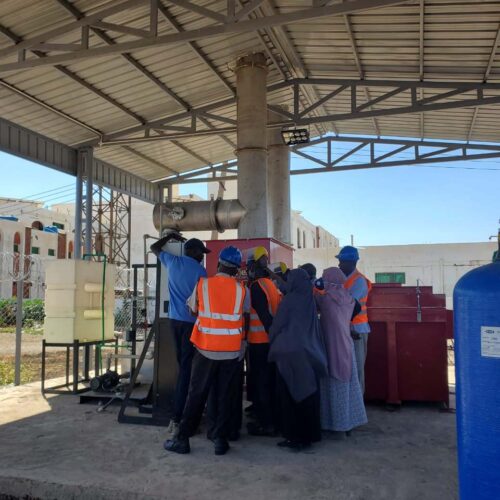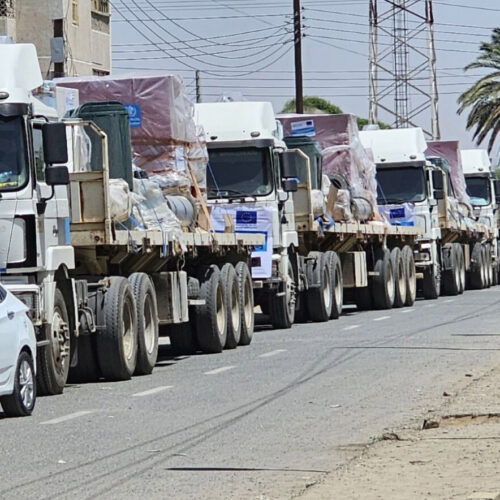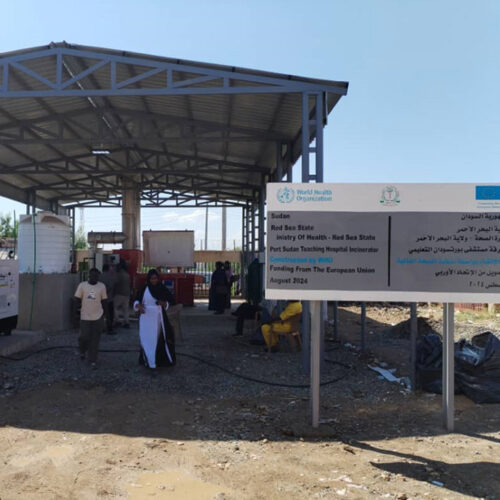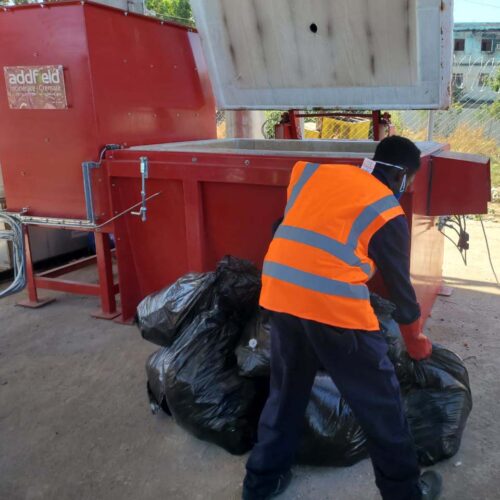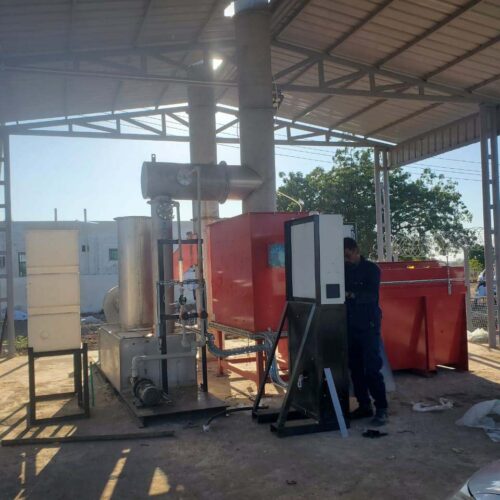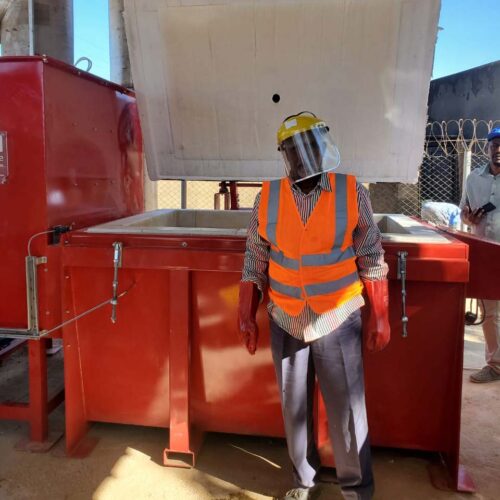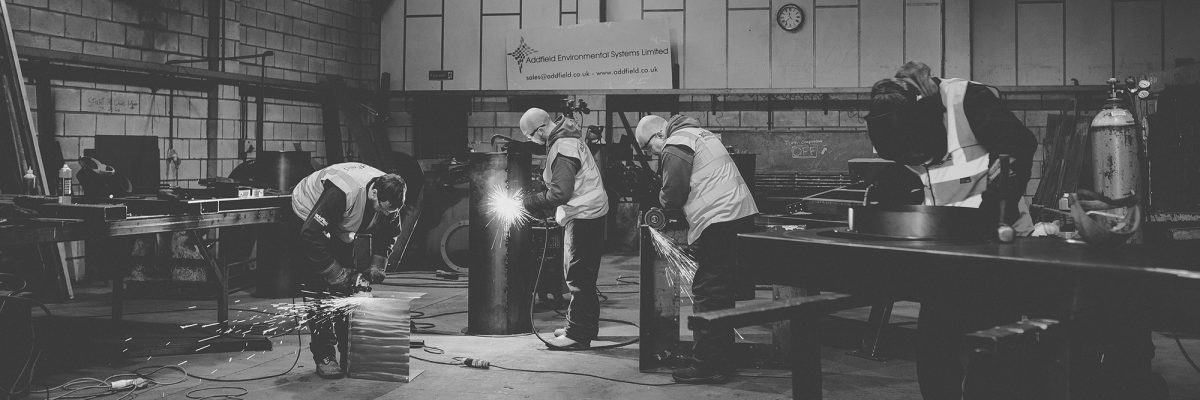WHOs Mission in Sudan
The World Health Organization (WHO) are a global aid agency that are dedicated to improving the public health of many developing countries, including Sudan. The WHO focus on combatting diseases, health emergencies and strengthening the healthcare, with their ultimate goal being to provide everyone, everywhere access to the highest level of healthcare.
The lack of facilities to dispose of clinical, anatomical, biomedical and sharps waste in Sudan is a known issue, the WHO contacted Addfield to lead the project in 2023 to manufacture eight advanced medical waste incinerators, the GM750s, across the country.
Modernising the clinical waste disposal infrastructure
The infrastructure of Sudan is considered underdeveloped, and with the added challenges following a prolonged civil war, logistics can be extensive. Non-Governmental Organisations (NGOs) like the WHO face many obstacles carrying out their work in country, as it does for Addfield when it comes to installing these critical medical waste disposal incinerators.
Manufacturing started at our factory in Staffordshire, UK where the machines underwent rigorous testing by our Technical Engineer, Jinto as part of our Factory Acceptance Testing. To provide additional securities to the local environment the GM750s were supplied with a modified variant of the venturi scrubber, specifically designed to reduce emissions that may occur during the combustion process, using a reagent dosing system.
The incinerators operate at a very high temperature to destroy pathogens from the hazardous and contaminated medical waste and other materials that are being disposed of. This added filtration system ensures that harmful gases aren’t going to be released into the environment, making them more environmentally friendly.
The Challenges in Sudan
This could have been a very challenging installation for us due to the ongoing instability across the region were it not for the support of our expert international engineers that are located near Sudan. Each of these essential the medical incinerators were installed at Hospitals and Health Centres across the country, with logistical support from the WHO.
To ensure a long and successful disposal of hazardous waste will be achieved as part of the installation process our engineers delivered a full range of face-to-face training to the local operators, covering optimal usage, ongoing maintenance and servicing of the incinerators. As of today, the machines have been handed over to the Ministry of Health, and the installation of the equipment has been widely recognised as a success.
It is a particularly crucial time in Sudan, with the country reacting to multiple outbreaks of diseases and the current conflict, the installation of the eight GM750s is another support beam in the efforts of strengthening the healthcare in Sudan and one that we are proud to have been a part of.
*Some of the pictures used in this case study are owned by:


